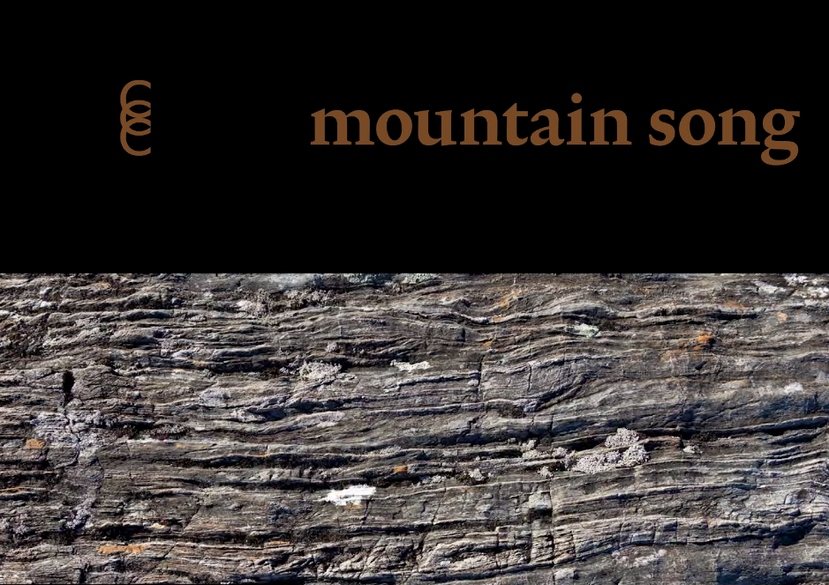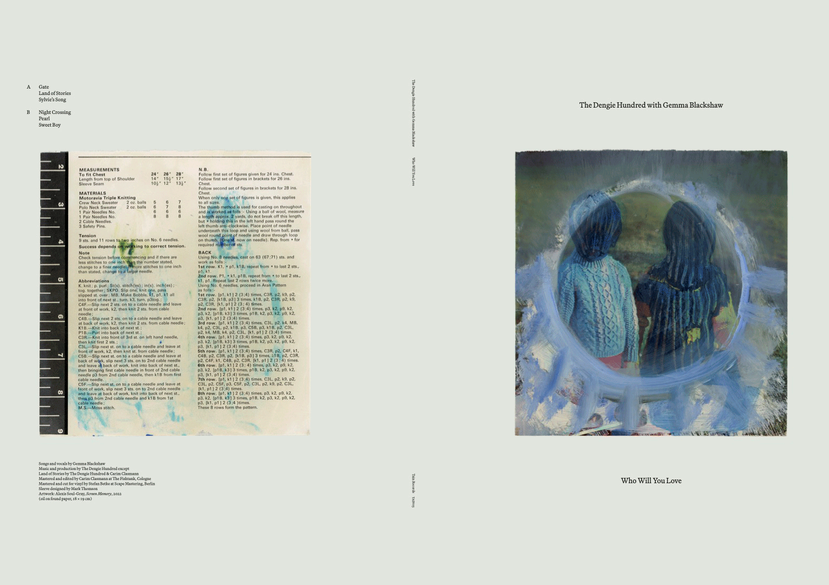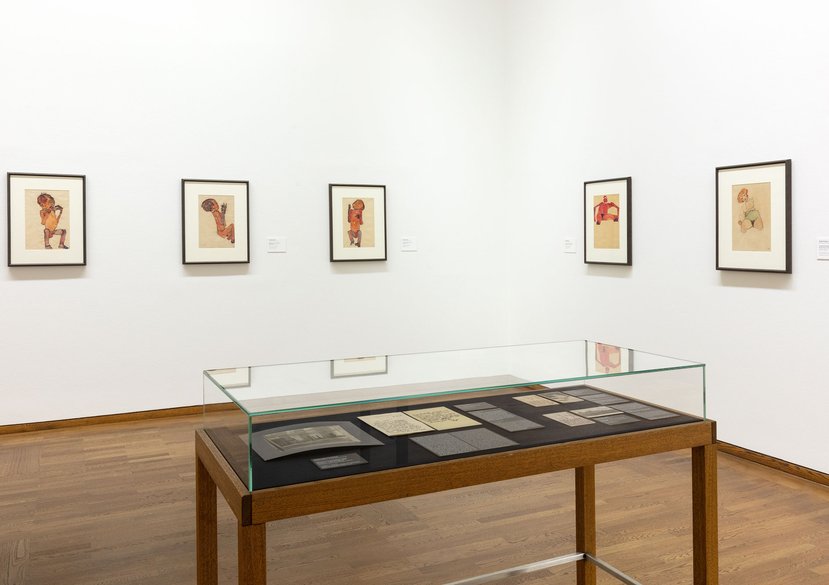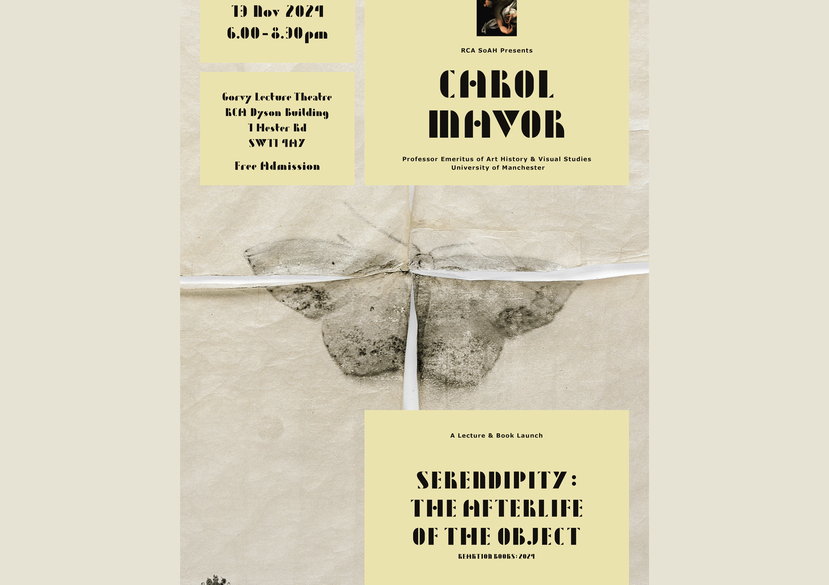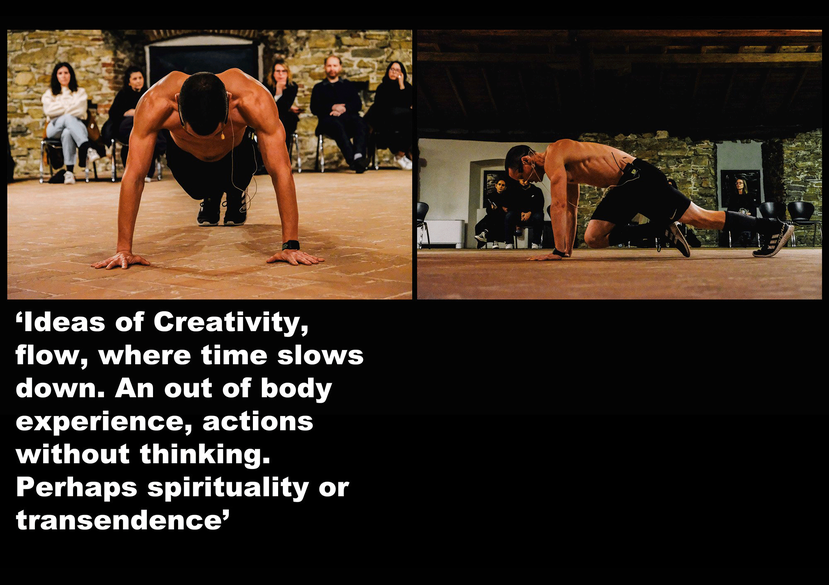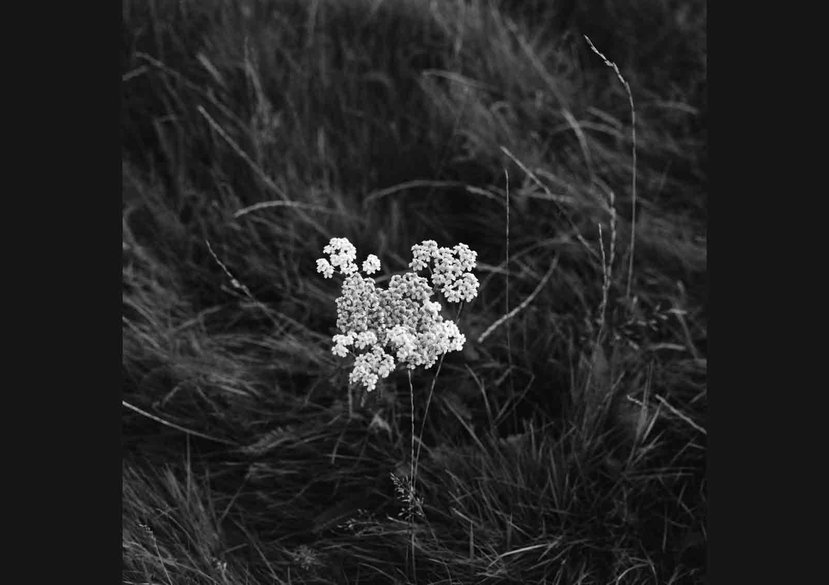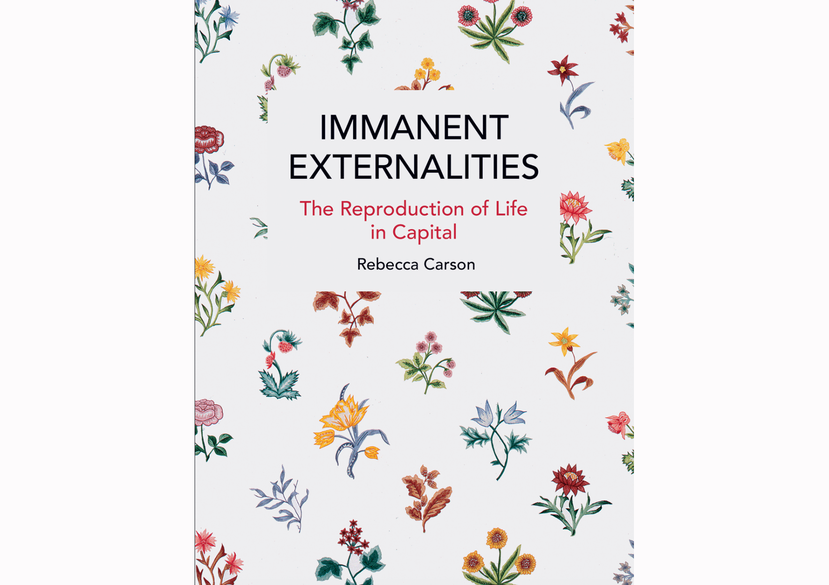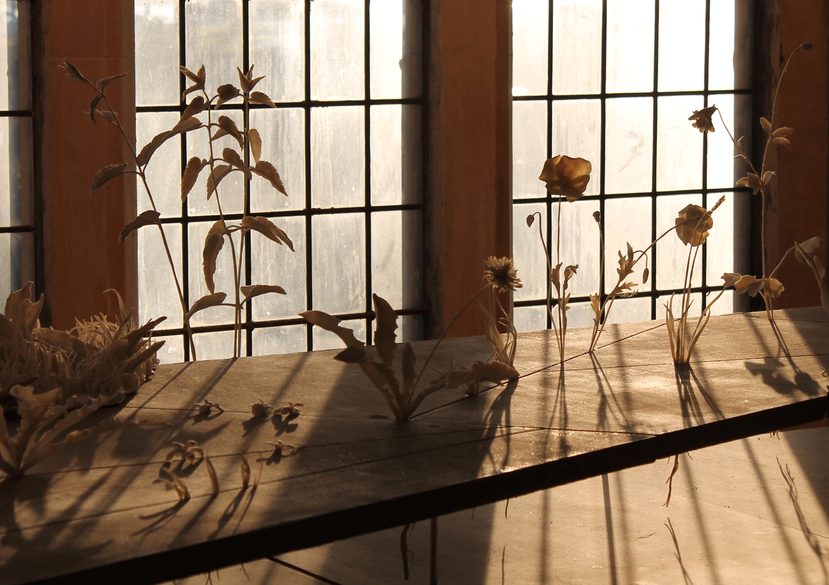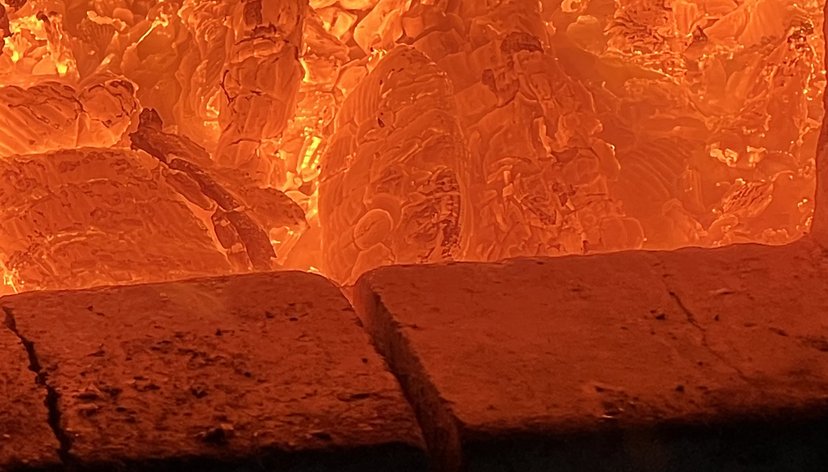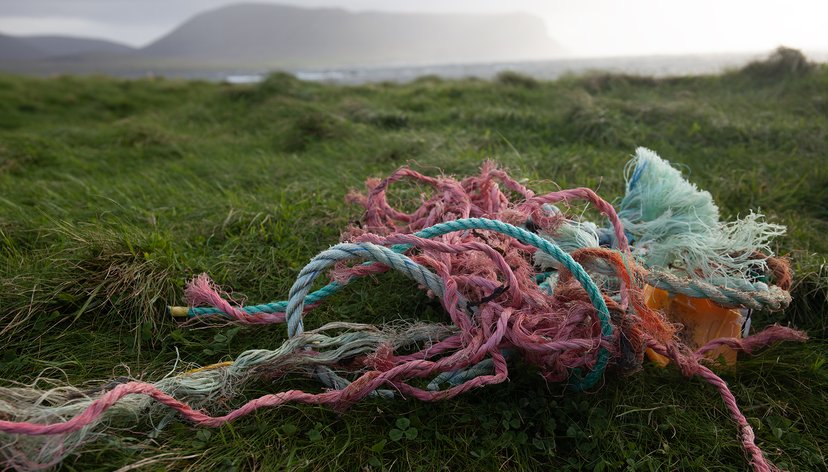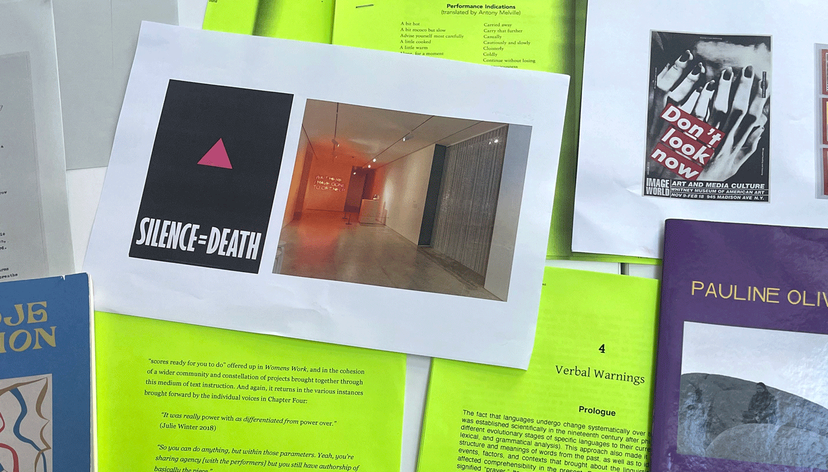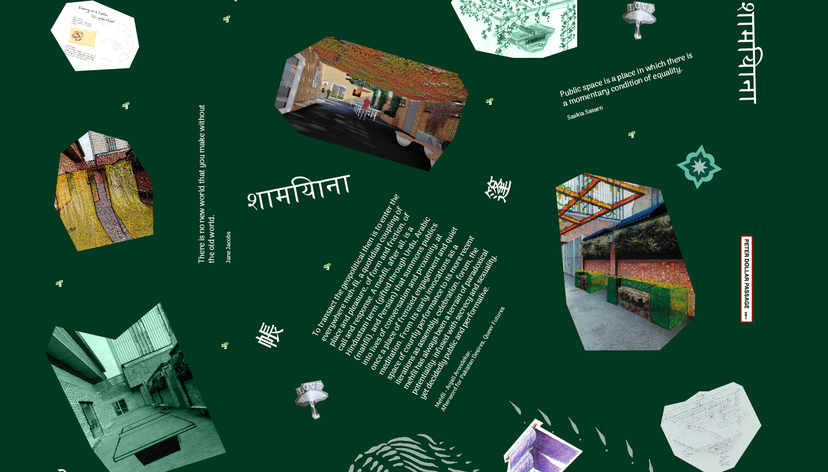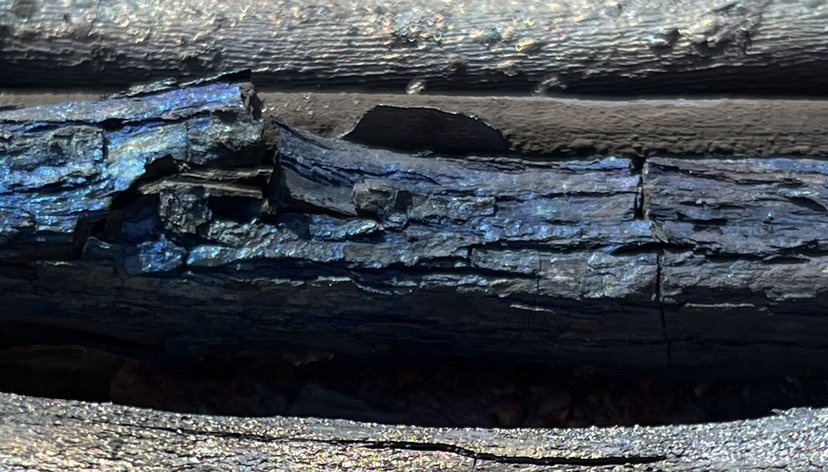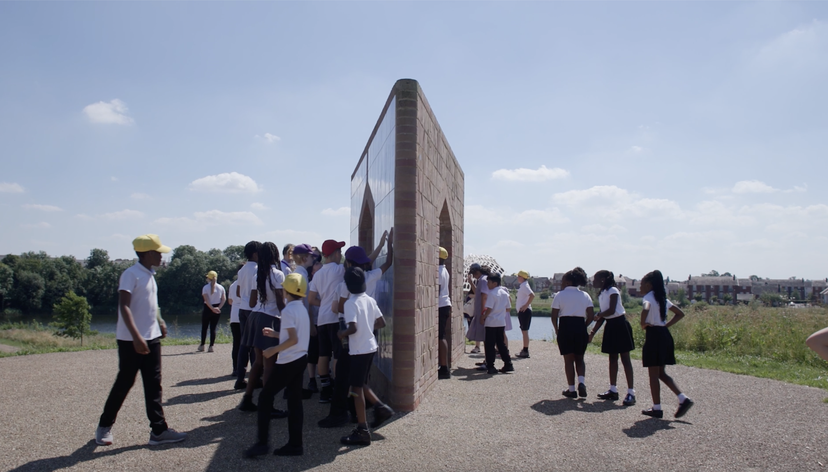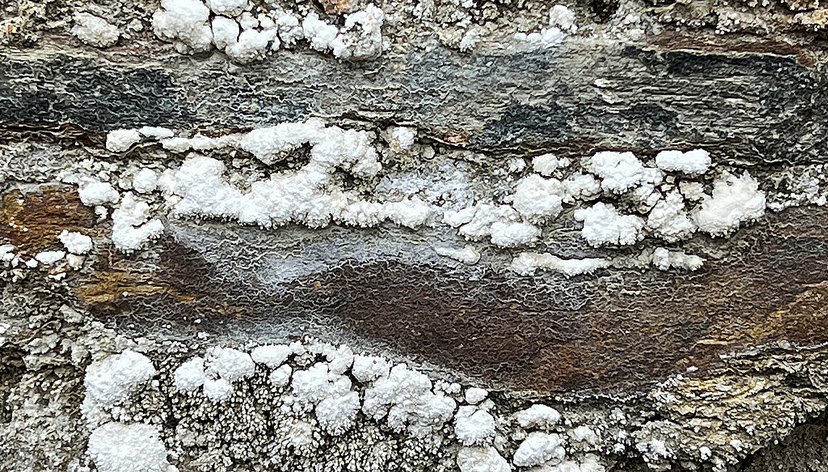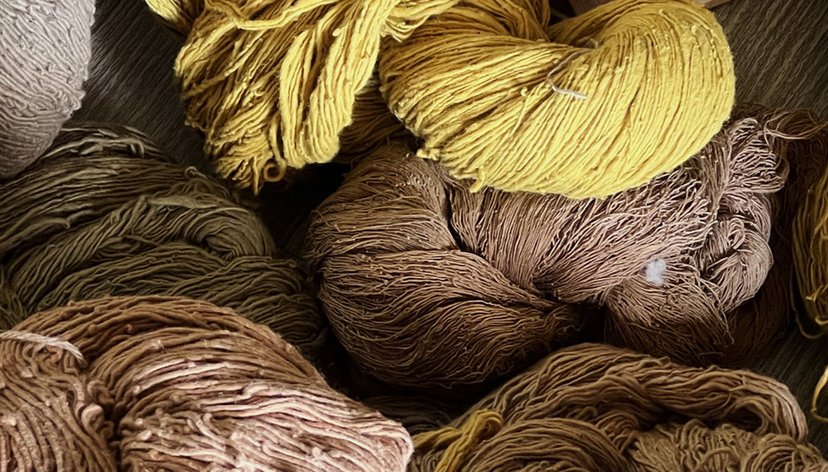
The Health & Care research cluster focuses on experimental arts and humanities methods, theories, and practices that explore the socio-political complexities of health and care from human, more-than-human and planetary perspectives.
At a glance
- Health & Care seeks to activate critical (meaning urgent, sceptical, evaluative) experimental and de/anti/post-colonial arts and humanities methods to offer new ways of thinking about the role of health, care and well-being in a contemporary global context.
- Health & Care builds ecologies of care across species, global networks, disciplines and contexts in the face of ecological and climate emergencies.
- Health & Care organises talks, performances, workshops, interventions, site visits, symposia, residencies and reading/writing groups that engage theory and practice to advance our understanding of health and care.
- Health & Care connects with postgraduate research and MFA groups within the School of Arts & Humanities, with the School's Teaching & Learning Committee and with the College’s Student Support and Staff Forum to reflect on how care is enacted across higher education institutions, and to develop best practices on pedagogies of care in precarity.
- Health & Care builds collaborative partnerships with other UK, European, and international higher education institutions, and with organisations across the creative and cultural industries, and health and social care.
Above image: Dr Alice Butler and Professor Gemma Blackshaw present at ConfabulationsX.
Key details
Gallery
More information
Recent and upcoming events
Art & the Critical Medical Humanities: Confabulations X Health and Care at the RCA
19–21 September 2024, Royal College of Art

SoAH Presents Carol Mavor, Serendipity: The Afterlife of the Object — A Lecture and Book Launch, 13 November 2024, Royal College of Art (poster designed by Stinsensqueeze)

Abbas Zahedi at Art & the Critical Medical Humanities: Confabulations X Health and Care at the RCA, 19–21 September 2024, Royal College of Art
Members
The Health & Care research cluster membership brings together practitioners and theorists from across programmes in the School of Arts & Humanities at the Royal College of Art. The cluster also develops transdisciplinary dialogues and collaborative projects with its associate members, who are researchers based in other RCA Schools or Centres.
All members and associates of Health & Care are undertaking research on health and care as a capacious and complex social and aesthetic configuration. Working across visual and theoretical practices, members approach the meanings, manifestations, mediums, and methods of health and care (what it is; what it could be) from a variety of different perspectives, which include the feminist, the queer, the archival, the anti-racist, the ecological, the embodied, the biopolitical, the anticolonial, the postcolonial, the philosophical, the medical, and the scientific.
Working across contemporary art practice, art history, philosophy, and writing, Health & Care academics share a commitment to transdisciplinary exchange and the open values, ethics, and values of research-creation. The cluster also partners with external organisations and institutions to forge collaborative research networks and extend understanding of health and care.
Our approach
The Health & Care research cluster seeks to explore and challenge the role of the arts and humanities in shaping how health and care is felt and understood. Advancing the call by William Viney, Felicity Callard, and Angela Woods for a ‘critical’ medical humanities (2017), we are committed to entangling disciplines and practices and taking creative risks to investigate “not only the meaning and historico-cultural contexts of health and illness, but their very production, concrescence and dispersal across the precarious, unequal and environmentally degraded societies in which we live.” This means a renewed focus on the conceptual and socio-political circumstances of care: as an infrastructure, environment, support system,and relational network. The cluster, which offers new ways into approaching the field of the critical medical humanities by foregrounding creative research methods and contemporary art practice, hereby focuses on the situated, relational, and entangled aspects of health and care across various shifting terrains (inter-cultural and transnational; human and more-than-human). To attend to these spaces of interconnection, we seek to develop interdisciplinary relationships of care through practices of conservation, reparation, and attention.
Approaching the complexities of ‘health’ and ‘care’ singularly and together, the cluster is committed to contesting and critiquing the social forces and systemic oppressions that have made some bodies and life forms more vulnerable than others – that is, un-cared for, un-healthy, un-well. Working within and against precarious socio-political and ecological contexts, what can the arts and humanities do? Or rather, what can an urgent, experimental, poetic, speculative, critical arts and humanities do for the ways health and care is perceived and practised? How can we, as researchers, develop alternate methods of attention and collaboration that have the potential to reconfigure the possibilities and politics of health and care?
Keywords: care; conservation; health; healthcare; wellbeing; wellness; sickness; survival; crisis; bodies; embodiment; ecology; environment; sustainability; vulnerability; attention; touch; texture; ethics; reciprocity; resistance; repair; precarity; maternity; mothering; reparation/reparative; senses; affect.
Activities
The Health & Care research cluster organises a range of collaborative research activities that respond to key socio-political concerns impacting how health and care is understood. The cluster’s research programme is also informed by current and emerging knowledge in the arts and humanities, with a particular focus on what creative practice and experimental methods can bring to the expanded landscape of health and care. In its activities and gatherings, the cluster promotes the vital conversations that emerge from theory and practice exchange.
The cluster also supports individual, partnership, and consortia research projects that further advance its exploration of the relations, situations, and problems that structure health and care.
Recent and current PhD projects supported by the Health & Care research cluster
The Health & Care research cluster is interested in partnering with PhD and postdoctoral projects relating to practices and theories of health and care. If you are a prospective applicant for PhD research in the School, or an early career researcher developing a postdoc application, please do not hesitate to contact a member of the cluster.
Amidu, Maria. Making that remembers: a correspondence between material and emotion (09/20)
Baluch, Sohaila. Thinking difference: a reimagination of British South Asian identity through re-enactments of second-wave feminist activist practices (09/20)
Clarkson, Hannah. The Absurd Art of A(r)mour: Playful Strategies of Resistance, Costumes of Care and Decorum for the Autoimmune Body (09/21)
Douglas, Caroline. Retouching The Archive: Gender and Class in Early Photography in Scotland (09/17)
Donnelly, Alex. Post-Traumatic Combat Poetics (09/21)
Forrester, Shannon. The Reparative Turn in Painting: Monstrous Interventions in Art and Identity Studies (09/17)
Heidorn, Nora. Reimagining Sexual Reproduction through Visual Arts Practices (09/20)
Hughes, Anna. The Excessive Body: The Affects of Sensual Encounters in Digital Media towards a Radically Embodied Future (09/18)
Layton, Sofie. ‘Capturing and Holding the Invisible’: An exploration into the equivalence of Gestation and Grief framed through the Medical Image (09/20)
Pöllänen, Minna. ‘Tender Orbits: caring for the circulation of space debris’ (09/21)
Salis, Dafne. Darkness and Light: The Vaginocamera (09/20)
Skovsgaard, Katrine; Sharing Chronic Headaches through Contemporary Dialogical and Touch-based Art (09/21)
Outputs
Gemma Blackshaw
Exhibitions
(2021) The Body Electric: Erwin Osen and Egon Schiele. Leopold Museum. Vienna, Austria.
https://www.leopoldmuseum.org/de/digital/digitale-ausstellungen/the-body-electric/en
Collaborations
With Dr Alice Butler, Sick Women: correspondences and performances (2020-ongoing)
A collaborative letter writing project that develops a multi-form and multi-disciplinary approach to its embodied, critical, and theoretical investigation of sickness, gender, and cross-historical correspondence and care. Across presentations, performances, readings, experiments, exhibition essay interventions, and a peer-reviewed academic article (“Sick Women Correspondents”, 2022/2023), it explores the potential of experimental feminist methodologies to ‘care for’ the ‘sick women’ figures (artists, writers, portrait sitters) of a global art history and visual culture.
Publications
BESSIE (book in development)
An epistolary biography-in-pieces of an English show girl central to the circles of Viennese modernism before becoming peripheral with chronic illness. Working with the traces of her increasingly sick body in painting, paper ephemera and marginalia in research archives and special collections, museums and private collections, the book reflects on the risky, reparative pleasures of piecing together a precarious yet always rebellious life, and on feminist art historical research as an expression of lovesick attachment to the ever-elusive object of study. Work in progress from BESSIE has been published in MAP Magazine (2022).
Discovering L.A. (book in development)
Further to the discovery of a novel by one of Egon Schiele’s lovers previously known only as ‘L.A.’, who he drew while pregnant and in care at Vienna’s Women’s Clinic, this project draws together a ‘sick timeline’ of research conducted through two highly medicalised pregnancies, and correspondence with literary translator Natasha Lehrer, who reads, annotates and relays L.A.’s book (available only in French) in English. Drawing upon autotheory, Sick Woman Theory and theories of translation as ‘production’ (as opposed to ‘reproduction’), the project seeks to recover L.A.’s experience differently. Work in progress from Discovering L.A. has been published in CARE(LESS), (2021) and the journal of the annual Egon Schiele-Symposium at the Leopold Museum (2020).
Blackshaw, G. and Butler, A. (2023). Sick Women Correspondents: Practices of Care in Cross-historical Love Letter Writing. MAI: Feminism & Visual Culture, forthcoming.
Blackshaw, G. (2022). The Sick Train. MAP Magazine. https://mapmagazine.co.uk/the-sick-train
Baluch, S., Blackshaw, G., Fraser, M., Heidorn, N., and Hermon, R. (2022). I care by… London: Research Communiqués, RCA School of Arts & Humanities.
Blackshaw, G and Kivland, S. (2021). CARE(LESS): A Supplement to On Care. London: Ma Bibliothèque. https://mabibliotheque.cargo.site/CARE-LESS-A-SUPPLEMENT-TO-ON-CARE-2021
Blackshaw, G. and Kaasa, A. (2022). Correspondence as Care for Erwin Osen’s ‘Lustknabe’. In: Egon Schiele, Mileus und Perspektiven, 4. Egon Schiele Symposium im Leopold Museum, pp. 122-134.
Blackshaw, G. (2021). On Constellations or Seeing Stars. Constellations by Esther Teichmann and Christopher Stewart, part of the online exhibition One Cell At A Time by the Human Cell Atlas, a global research initiative which seeks to map every cell of the human body.
https://constellations.world/essay/on-constellations-or-seeing-stars
https://www.onecellatatime.org
Blackshaw, G. (2020). Egon Schiele’s Clinical Modernism. In: Egon Schiele, Dialog und Inszenierung, 3. Egon Schiele Symposium im Leopold Museum, pp. 24-39.
Alice Butler
Select publications
Close Writing: Kathy Acker, Cookie Mueller, and Love-in-pieces (forthcoming)
An interdisciplinary, creative-critical study that circles around the entangled lives, works, images, and piecemeal archives of two women artist-writers associated with New York’s downtown scene of the 1970s and 1980s – who both died in the contexts of gendered and sexualised disease – Kathy Acker and Cookie Mueller. Drawing on queer feminist approaches, the book theorises and performs an original epistolary methodology involving affective and speculative love letters to explore the vitalities, complexities, pleasures, and perversities of Acker and Mueller’s own autofictional experiments with epistolary writing. The book contends that their interdisciplinary work shifted the boundaries of sexual desire, the sick body, and love, as well as the line separating art and writing. (Funded by the Terra Foundation for American Art and the AHRC.)
The Perversions of Textile in Feminist Practice (in development)
An interdisciplinary book project in feminist art history and theory that explores the complex meanings and manifestations of perversion as represented and performed in feminist practices, with a focus on photography, performance, and poetics. It examines the ways gendered, pathologized sicknesses become socio-political and/or sexual perversions when reinterpreted by feminist and queer artists and writers. Focusing particularly on the role of textiles within such a configuration, I am interested in how this turn to ‘the perverse’ renegotiates bodily, sexual, spatial, and creative agencies. Essays emerging from this research have appeared in MAP magazine, ON FIGURE/S: Drawing After Bellmer, and ON CARE, with a peer-reviewed article on Woodman’s autoeroticism also forthcoming in Gestures: A Body of Work (Manchester University Press, forthcoming). (Funded by the Paul Mellon Centre, the Terra Foundation for American Art, and the AHRC.)
Butler, A. Perversions at her Adolescent Fingertips, Or, Francesca Woodman’s Autoerotic Attentions: an essay-caress. In: A. Butler, N. Osborne, and H. White, eds., Gestures: A Body of Work. Manchester: Manchester University Press, forthcoming [peer reviewed].
Blackshaw, G. and Butler, A. (2023). Sick Women Correspondents: Practices of Care in Cross-historical Love Letter Writing. MAI: Feminism & Visual Culture, forthcoming.
Butler, A. (2022). Too Likeable: To the Side of Rosemary Mayer, Parts 1 & 2. MAP Magazine, Issue 66, August, https://mapmagazine.co.uk/too-likeable-to-the-side-of-rosemary-mayer-part-1
Butler, A. (2021). ‘Have you tried it with three?’ Ann Quin, Love Triangles, and the Affects of Art/writing. Capacious: Journal of Emerging Affect Inquiry 2(3), pp. 82-107 [peer reviewed].
Butler, A. (2021). Nylon Perversions. In: S. Kivland, K. Macfarlane, and M. Newman, eds., ON FIGURE/S: Drawing After Hans Bellmer. London: MA BIBLIOTHÈQUE / Drawing Room, pp. 24-31.
Butler, A. (2020). Looking and Touching, Desire, Closely. In: S. Kivland and R. Jagoe, eds., ON CARE. London: MA BIBLIOTHÈQUE, 2020, pp. 30-38.
Butler, A. (2019). Fan Letters of Love. In: C. Grant and K. Random Love, eds., Fandom as Methodology: A Sourcebook for Artists and Writers. London: Goldsmiths Press, 2019, pp. 149-164 [peer-reviewed].
Collaborations
With Professor Gemma Blackshaw, Sick Women: correspondences and performances (2020-ongoing)
A collaborative letter writing project that develops a multi-form and multi-disciplinary approach to its embodied, critical, and theoretical investigation of sickness, gender, and cross-historical correspondence and care. Across presentations, performances, readings, experiments, exhibition essay interventions, and a peer-reviewed academic article (“Sick Women Correspondents”, 2022/2023), it explores the potential of experimental feminist methodologies to ‘care for’ the ‘sick women’ figures (artists, writers, portrait sitters) of a global art history and visual culture.
Select conferences, programming, and exhibitions:
Butler, A. and Bell, Hatty Frances. (2023). Local/Global Communities of Care: Films, Words, and Conversations, Stroud Valley Arts, 9-11 March.
Butler, A. and Blackshaw, G. (2021). Sick Women: The Chronic-poetics of Feminist Art History. College Art Association Annual Conference, 10-13 February [co-convened with Professor Gemma Blackshaw, RCA].
Butler, A. (2019). Stealing Desire: Kleptomania Talks, Freud Museum London, April-July 2019.
Graham Hudson
Lectures
2023 On not knowing, how artists teach, Glasgow School of Art
2023 The Art Work Out, Stark Centre for Physical Culture, Austin, Texas
2023 The Art Work Out, London College of Fashion
2022 Sculpture Training, ArtDate, Bergamo
Exhibitions
2022 The Phantom Empire, 35-37, Paris (Solo)
2020 White Timeless Borders, Times Art Square, Shanghai (Group)
2020 In Between, Times Art Museum, Beijing (Group)
2019 Made in Illusion 2, Artron Art Museum, Shenzhen (Group)
2019 Wavelength Reset, Museum of Contemporary Art, Chengdu (Group)
2018 Wavelength, Baolong Museum, Shanghai (Group)
2017 Major Trauma, Monitor Studio, Lisbon (Solo)
Conferences convened
2022 The Art and Design of Fitness, Royal College of Art, London
Jessica Potter
Notes for the start of Spring, (2023) Phytogram workshop and seminar in the landscape with Kent Downs AONB and Botanist Alex Lockton
Walker Evans Revisited, (2022) Curated by David Campany, Helmond, Netherlands
A Bird to Overhear, (2022) Breece Honeycutt Copy Press Readers Union
A Fernery for Friendship, (2021) Seaweed Shop Hastings, Installation and Garden Design
Biennale Fur Aktuelle Fotografie, Mannheim (2020) The Lives and Loves of Images, curated by David Campany
Potter, J (2020) Labour Anonymous, Designed by Will Holder, limited edition publication
Rocks and Weeds (2019) Solo Show, Herbert Read Gallery, UCA, Canterbury.
A Mass, A Gathering (2020) Copy Press Readers Union event hosted by Strange Cargo, with performances by Andrew Kotting, Edith Pasquier, Becky Beasley.
Ground, essay and public talk delivered at the Towner Gallery, Eastbourne (2020)
Publication of Ous essay in exhibition catalogue.
House of Life, (2016) Performative Reading of Labour Anonymous, Curated by Becky Beasley.
2015 Copy Press, response to Pure Means by Yve Lomax
Hermione Wiltshire
Exhibitions
The Birth of the Image 2016-2020, exhibited on the ‘Sexuality &
Power’ website, Royal College of Art, 2020 sexualityandpower.rca.ac.uk and will be exhibited in On Art and Motherhood, a Hayward Touring exhibition
Terese in Ecstatic Crowning 2008-2017, exhibited in Birth at TJBoulting, Matrescence at Richard Saltoun London curated by Catherine McCormack and also at The Gordon Museum, King’s College London.
Forthcoming
Preparing for Birth (2008) will be exhibited in On Art and Motherhood, a Hayward Touring exhibition
Actions for Knowledge Repair (in progress) Chaire Maternite, Université de Montréal, Canada 2024
Publications
In/Visible Technoscience: Feminist New Materialisms for (Post)Pandemic Digital Pedagogies, Wiltshire, H, Bayley, A. in Diffracting New Materialisms, ed. By Annouchka Bayley and JJ Chan, published by Palgrave
Reed, Becky. 2016. Birth in Focus: Stories and Photos to Inform, Educate and Inspire. London: Pinter & Martin. https://www.pinterandmartin.
com/birth-in-focus
Conferences convened
Researching Sexuality & Power from Analogue to Digital, Royal College of Art, 2020
Sexualityandpower.rca.ac.uk
Oxytocin in collaboration with Procreate, Royal College of Art, 2018
Gender Generation: Creative practices in Art & Design, in collaboration with Claire Pajaczkowska and Elena Marchevska

